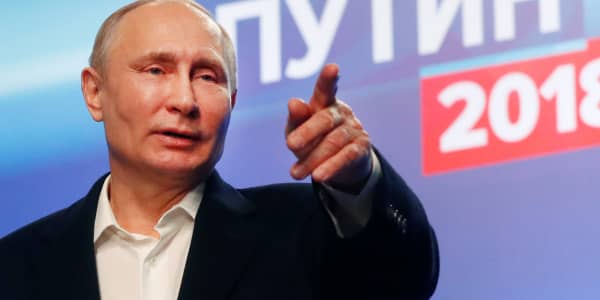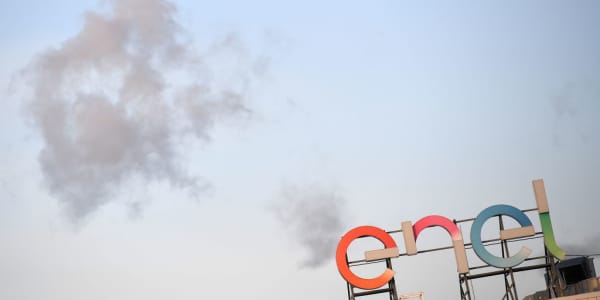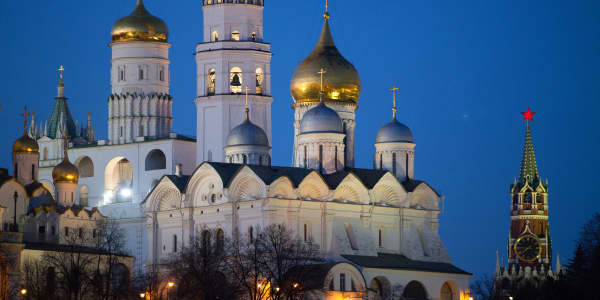
Embattled Ukraine lacks "the power or the possibility" to stand up to Russia at present, Ukraine's former prime minister told CNBC.
Yulia Tymoshenko, who led the government in 2005 and again from 2007-2010, said the U.S. and the U.K. needed to help Ukraine to combat any future incursion by Russia.
"Of course, Ukraine at this point doesn't have the power or the possibility to face Russia," she said.
"Any kind of interrelations with Russia should be four-part negotiations, so, not just between the Russia and Ukraine, but between the countries that signed the Budapest Memorandum (a security agreement signed by Russia, the U.K. and the U.S. in 1994)."
Ukraine has remained on the brink of crisis since the overthrow of the pro-Russian president Viktor Yanukovych in February. In early March, Russia annexed Crimea in the south of the country. Since then there has been fighting between pro-Russian militias and Ukrainian forces in the country's industrial heartland in the east.
Read MoreRussia vs Ukraine: A fighting force comparison
As part of Yanukovych's ouster, Tymoshenko was released from prison, where she had been held for three years on charges of embezzlement and abuse of power.
Russia's aggression has led both the U.S. and the European Union (EU) to hit it with an escalating series of sanctions. These include visa bans and asset freezes on companies and officials in both Ukraine and Russia with links to President Vladimir Putin.
Tymoshenko called for sanctions to be increased still further. "The democratic world has to continue to increase sanctions and to continue with stopping Putin's aggression until the occupation of Crimea is over," she told CNBC.

The high-profile politician and businesswoman heads the All-Ukrainian Union "Fatherland" party and is in favor of greater integration with the West, including Ukraine becoming a member of the EU and NATO. She will run for president of Ukraine on May 25, having lost out in the 2010 presidential elections to Yanukovych.
In Sunday's election, Tymoshenko is seen lagging behind rival Petro Poroshenko, an oligarch known as the "chocolate king" due to his business interests in the confectionery industry.
According to a poll held by the Kiev International Institute of Sociology earlier this month, over one-third of Ukrainians will vote for Poroshenko, with Tymoshenko in second place with just 5.9 percent of the vote.
GfK
Tymoshenko admitted to CNBC that as prime minister she had lacked the power to convert Ukraine, an ex-Soviet Union satellite state, into a westernized democracy.
"Ukraine had a chance to build a strong, pro-European country, but unfortunately, the president that we had elected did not want to dismantle the oligarch system of power in Ukraine. Instead he practically became head of this system," Tymoshenko told CNBC.
"Unfortunately I could not stop this process from happening. I was not strong enough and I could not, in practice, persuade our president to change."
Tymoshenko's views on Russia contrast with those of some of the other Ukrainian presidential candidates.
On Tuesday, rival Mykhailo Dobkin of the Ukrainian Party of Regions said Ukraine needed to work with Russia, as well as Europe and the U.S.

"As far as Russia is concerned, if we manage to normalize economic relations with this country, it would be a so-called guarantee of the future that nothing will happen like is happening now on our joint borders," Dobkin told CNBC.
He added: "We should follow the policy of open doors and work on relations where we have strong interests. In the spheres where our interests coincide with the interests of the European Union, we should work with the EU. Where we have close ties with the trading union of Russia, we should follow those interests."




